The Soldiers (or Plummer)
- .... . / ... --- .-.. -.. .. . .-. ...
How true to life,
All too true . . . you sing the Achaeans’ fate,
All they did and suffered, all they soldiered through,
As if you were there yourself or heard from one who was.
—Robert Fagles (translator), The Odyssey (8.548–551)
Roy Underwood Plummer (1896–1966) was born in Washington, DC, & enlisted in the army in 1917. Corporal Plummer served in France in Company C of the 506th Engineer Battalion, which built roads, fortifications & conducted other manual labor that was essential to the army. Around 160,000 African American soldiers served as Services of Supply troops in France, enabling the critical supply & movement of white combat troops.
Plummer dutifully kept a diary throughout the war. His background as a clerk is exemplified by his precise understanding of grammar (he often crosses out or corrects himself, as if aware that someone else will be reading his work), impeccable handwriting & clear-cut descriptions of his experiences. Plummer’s journal, housed at the National Museum of African American History and Culture, has been fully transcribed & digitized by the Smithsonian Transcription Center.
After the war, Plummer returned to Washington, DC, & practiced medicine in the District of Columbia for over forty years. ‡‡


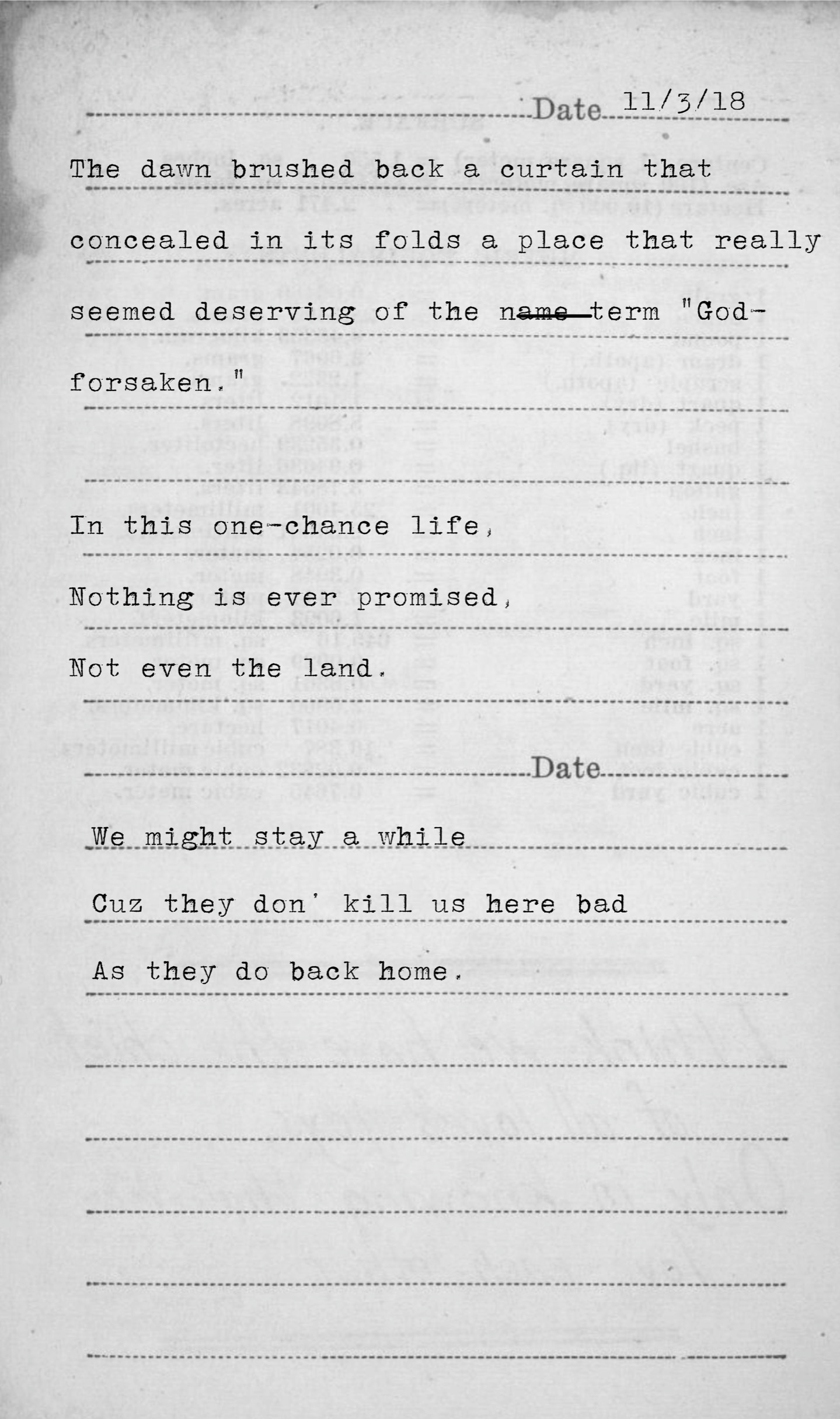


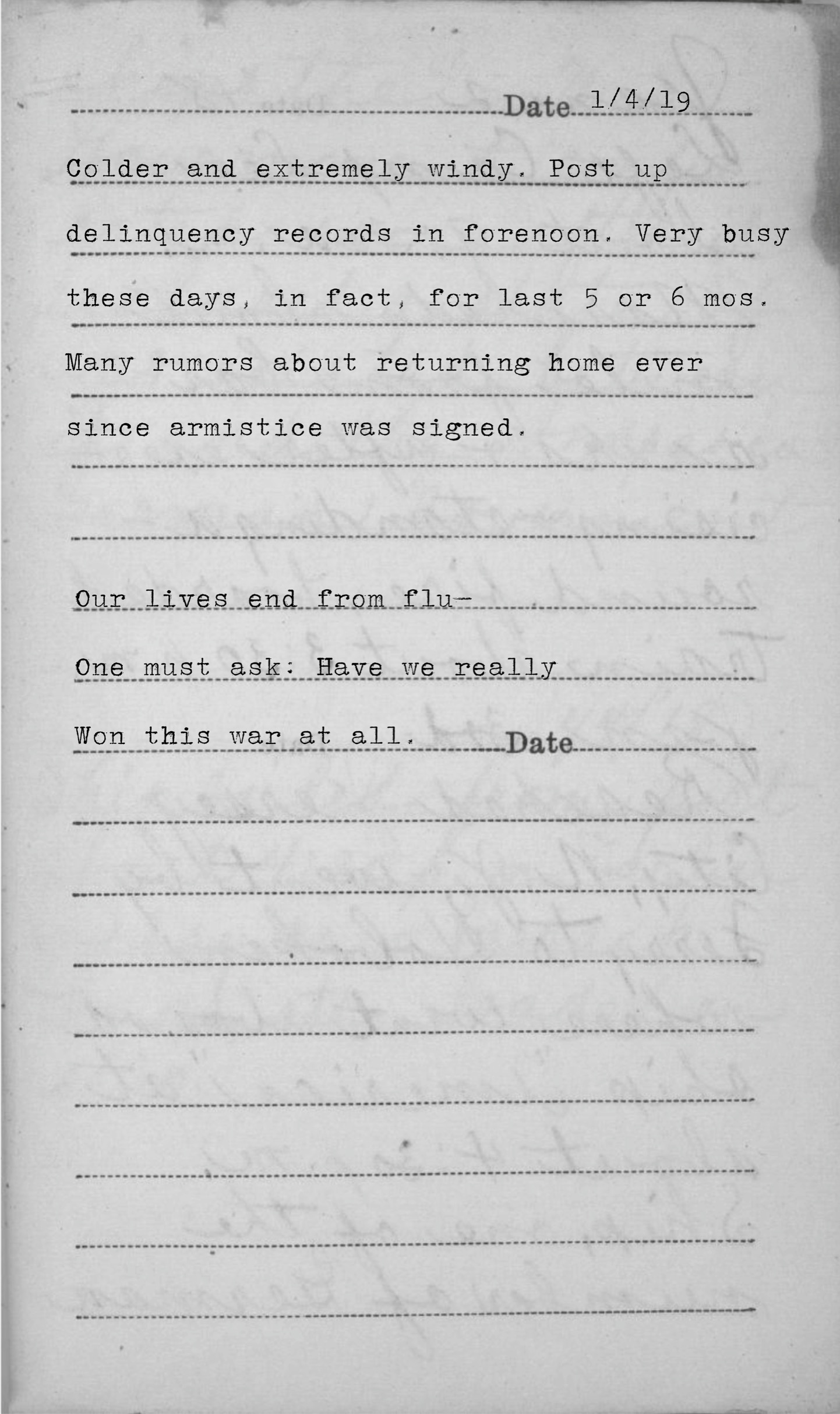



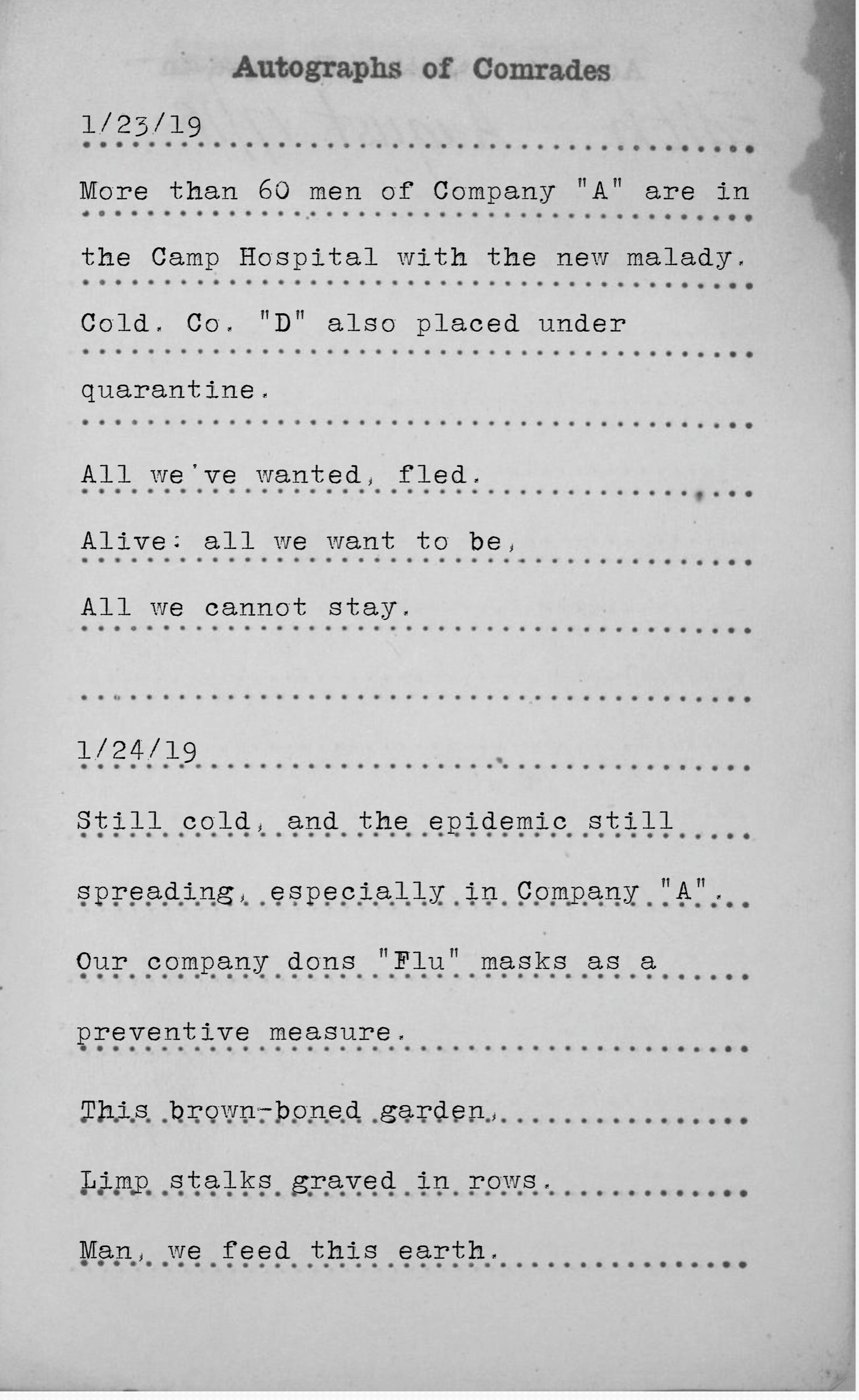

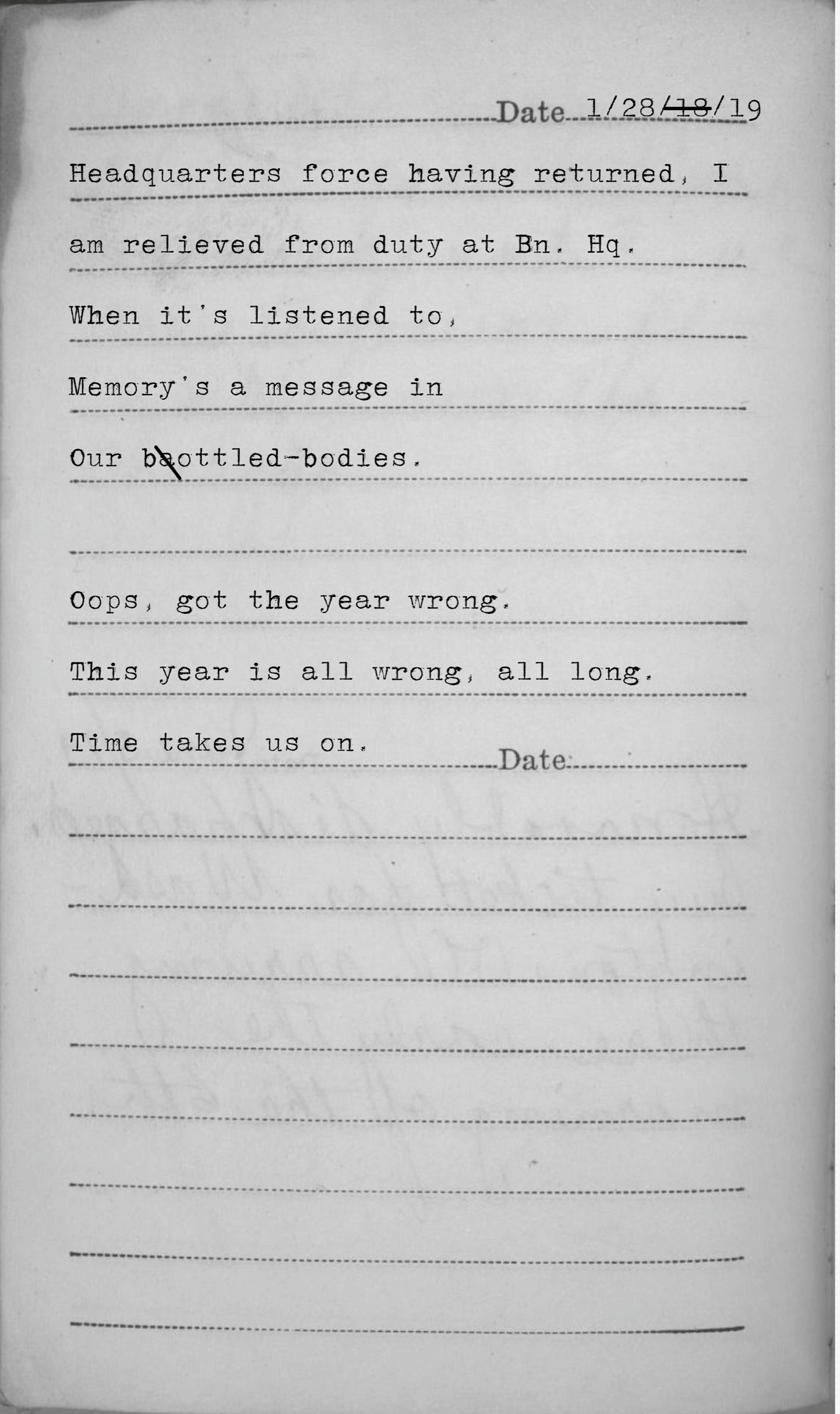
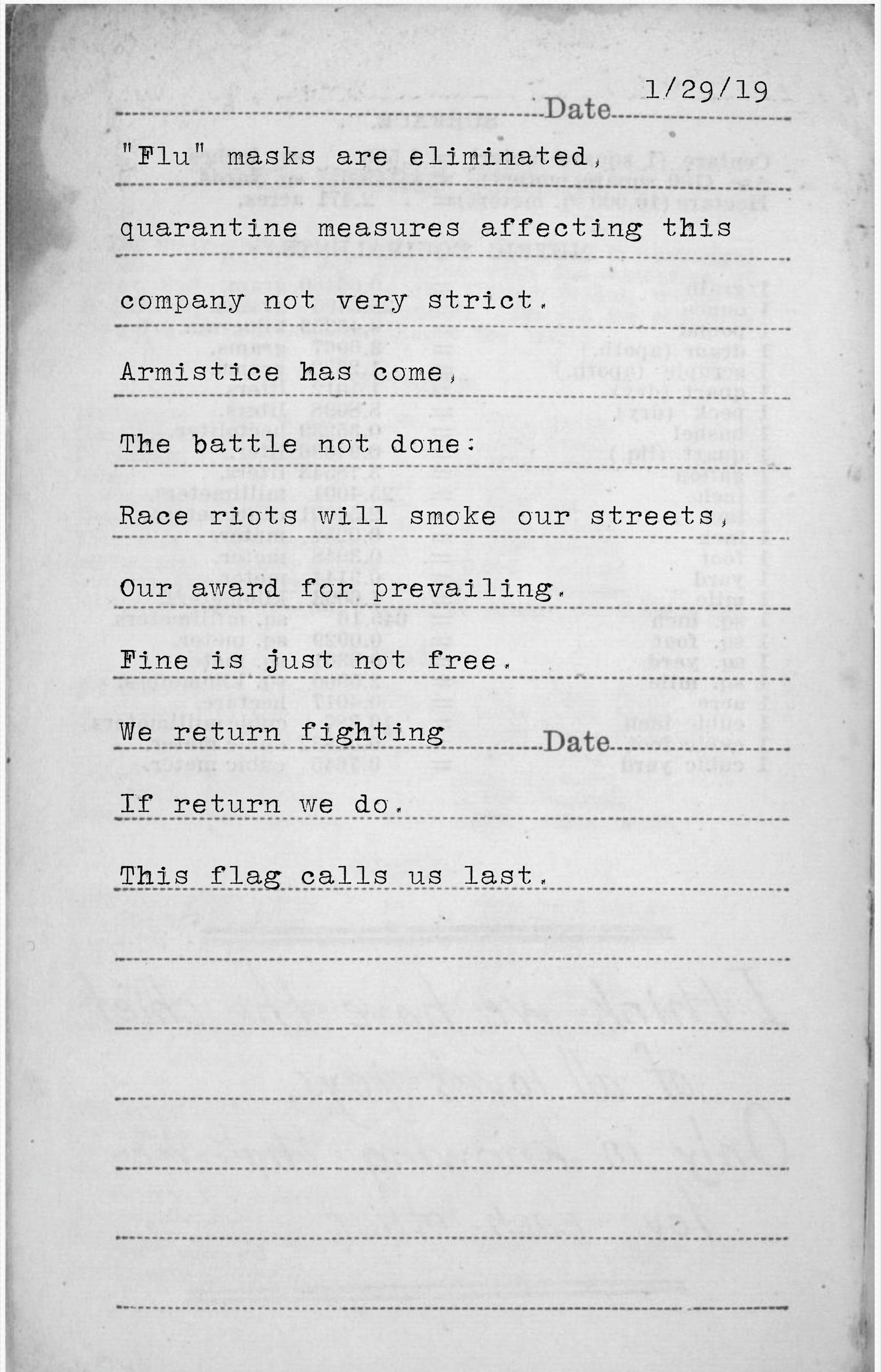

To view as reflowable text, see this page
The prose portions are his original diary entries, while the verses are my own creation, where I imagine new writings. In writing in Corporal Plummer’s voice, I wanted to do so in a form that embodied his concise language. The lined papers used as a journal background in this piece are scans of blank pages in Plummer’s original diaries. The haiku was particularly fitting—many of Plummer’s entries are one to three sentences, & the haiku is three lines, their five-seven-five syllable pattern demanding an economic use of language.